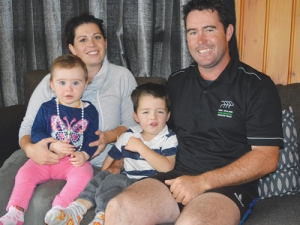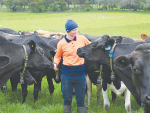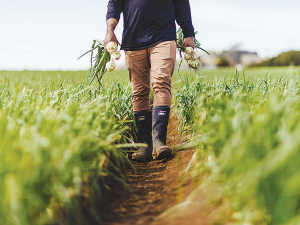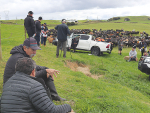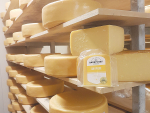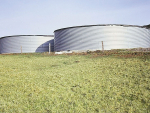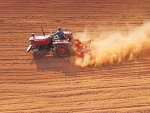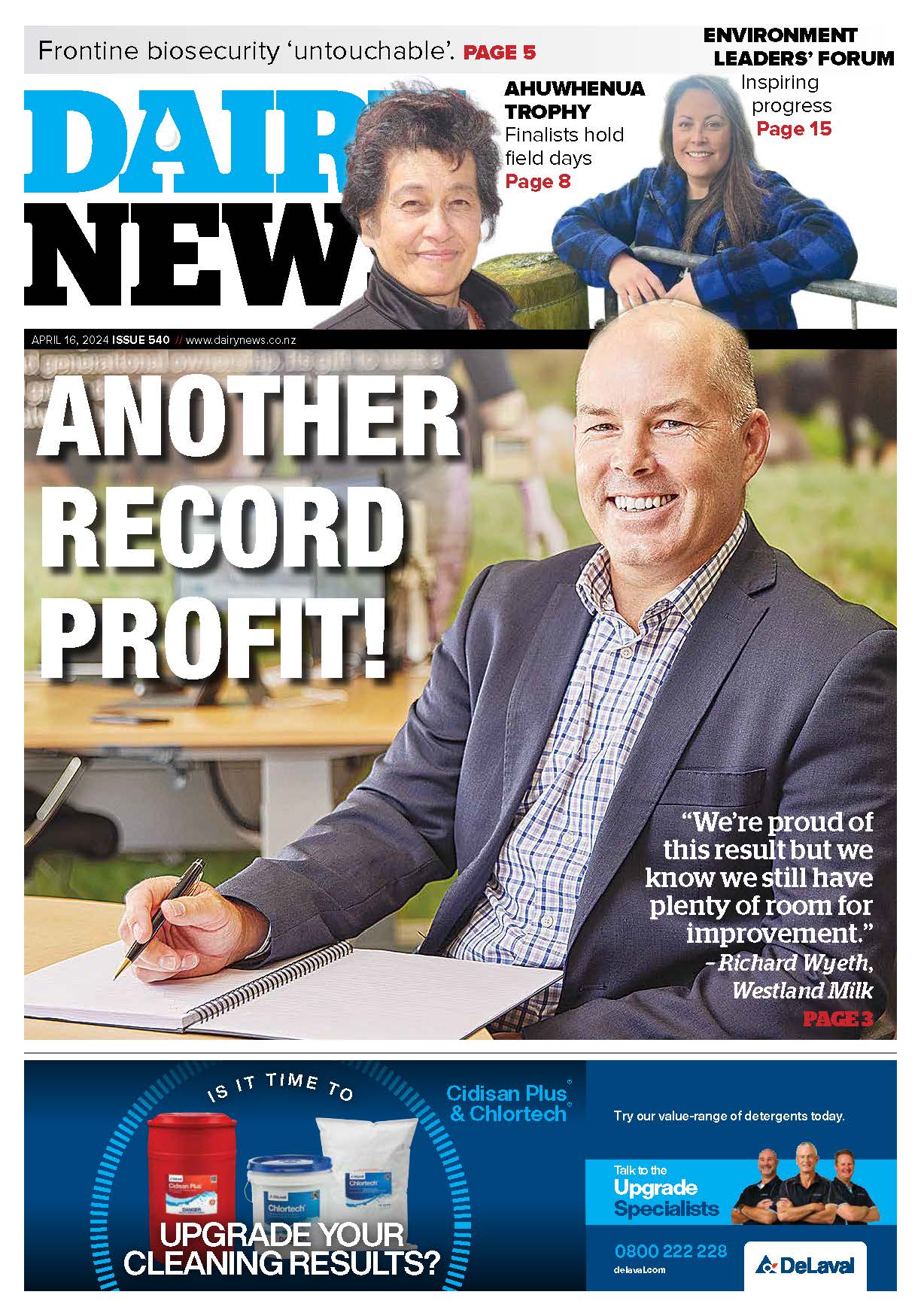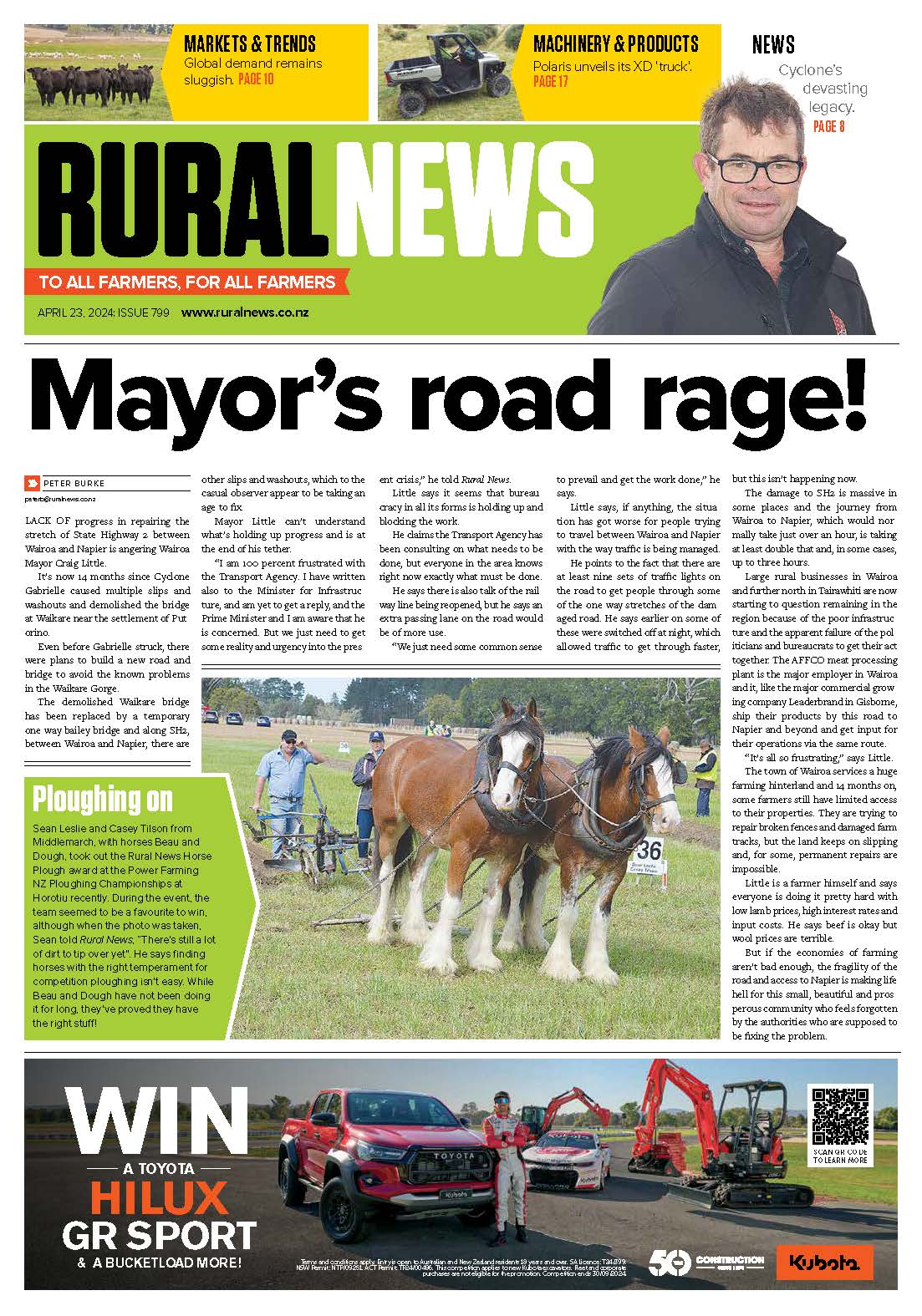Foote (30) played semi-professional rugby for 10 years; today he’s contract milking 425 cows at Miranda, Hauraki Plains, for Russell and Ces Evans.
In only his fourth season in dairying, Foote was crowned the Farm Manager of the Year at this month’s New Zealand Dairy Awards.
Unsurprisingly, his rugby career came to the judges’ attention during the competition.
“The life skills and disciplines from his previous career as a rugby player have given him a great grounding for dairy farming. He has a strong focus on improvement and does a SWAT analysis each six months, focusing on turning weakness into strength. We found that very refreshing,” the judges noted.
Foote told Dairy News that while growing up he had two passions in life – rugby and dairy farming.
In 2000, he was given an opportunity to advance his rugby career in Auckland, and spent the next 10 years playing semi-professional rugby in New Zealand and overseas. But in 2010, James and wife Louise decided to return home to pursue his other passion.
Despite being born and raised on a drystock farm in Pukekawa, Foote was attracted to milking cows and the potential in dairying. “Dairy farming was a clear winner for us, with the pathways and the support you can get through it.”
For two seasons starting 2011 he was second-in-charge on a farm owned by Craig Strawbridge at Ngatea. In 2013 he worked as farm manager on a 250-cow farm at Mangatangi.
Foote then decided it was time to lift his game to another level. He applied to be a contract milker with the Evans. In his job interview Foote laid out his plans for the farm, to raise milk production from 750kgMS/ha to 1000kgMS/ha.
“When I came for an interview with the farm owner for this position he had never done anywhere near 1000kgMS/ha. I love a challenge.”
In his first season on the farm Foote is on target to produce 135,500kgMS – 4500kgMS shy of the target. But this was no ordinary season; the Hauraki Plains was gripped by a really dry summer crippling drought.
“I’m pretty happy with the season; we had a very dry summer. Despite the setback this is a record production for the farm.
“If you come into your first year on a farm you inherit a lot of things from seasons before. We have dealt with whatever we inherited; we have put a few strategies in place to get to the 1000kgMS/ha.”
Winning the national title has been “unbelievable”, says Foote. They entered the awards for the first time, only for the feedback from judges that would help them improve their business. “To win the national title was unbelievable really. It’s still sinking in to be honest.”
Winning the Auckland-Hauraki regional title was a bonus.
“I told Louise the regional awards had taken a fair bit of our time; we were looking to go up to Auckland [for the national finals] as a bit of a holiday – time taken from the farm and the kids.
“It was a pleasant surprise to go up there and win. In my acceptance speech I did promise Louise a holiday at some stage.”
Louise helps with relief milking and getting cows in when their only worker is on leave. However, her main role is looking after their children Cooper (4) and Emerson (18 months). She will get more involved in day-to-day farming as the children grow up.
The Footes have a goal of $1 million equity in 10 years. And they plan by 2016-17 to have gone 50:50 sharemilking with 300-400 cows.
Foote says the goals are reassessed regularly as circumstances can change. But they “have goals in place and are extremely motivated to get there.”
His rugby career has been a good grounding for dairying, he says. “I bring a lot of things that I have learnt from playing rugby into dairy farming; lots of things like 1% gains that all add up to getting you there in the end.”
The awards have put them into contact with many people and they plan to tap into this.
“We are utilising all the people we can around us; we are relatively new and it’s important we use all networks around us to go forward. People are willing to help so it’s good to have all this support.”
Foote singles out his previous employer Craig Strawbridge and current employers Russell and Ces Evans for their support.
As a contract milker, he is self-employed and on a fixed payout, locked in at the start of the season. While he is not directly affected by the low payout, Foote needs to use “all the tools in our bag” to get through the tough season. “Our supportive owners help us out.”
The 160ha farm has its challenges; 120ha are flats of marine clay and 40ha of hills.
The cows eat mainly pasture grown on farm; PKE, maize and grass silage are used as supplementary feed.
Breaking new ground
With the low payout, James Foote’s first year as a self-employed dairy farmer has been a baptism of fire.
His farm assistant Matheson Taylor is also in his first year of dairy farming.
Foote says there been a lot of new ground broken on the farm this season.
The low payout hasn’t helped. But he says as a contract milker, if he can get through a tough year, things can only get better from here.
“It’s a real test if you can get through this year. Although the low payout’s having a negative impact, this tough season will make me and the farm owners better farmers for it.
“Like rugby, one bad game doesn’t mean the end of the world; you learn from it and fine tune your game and go into the next one,” Foote says.





